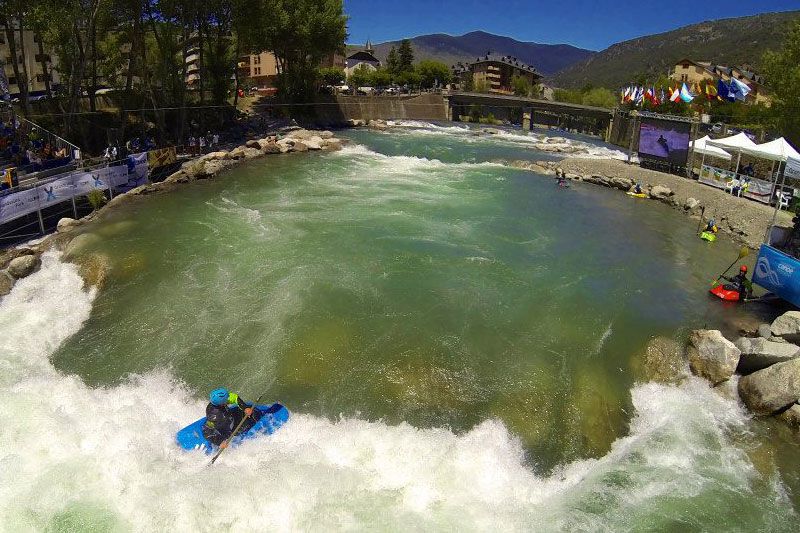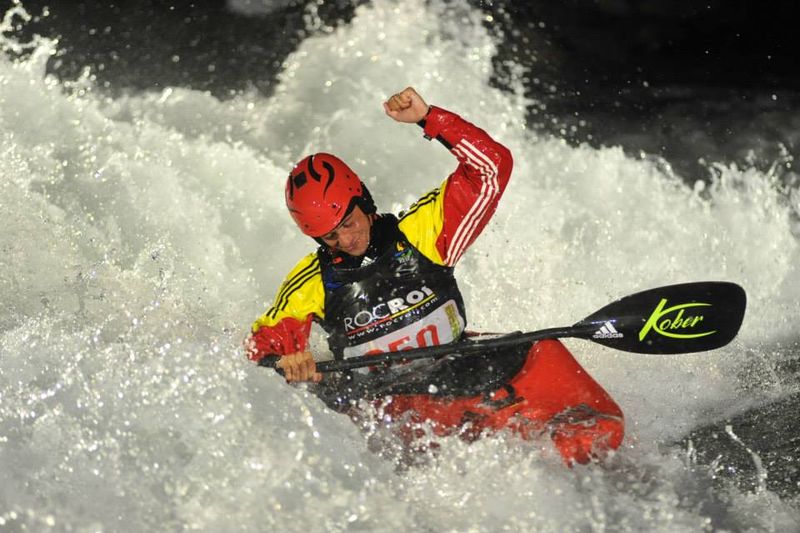Freestyle Canoe - The Right Sport for You?

Freestyle kayakers compete by performing a variety of moves or tricks on a stationary river feature. Standing waves, 'holes', or hydraulics, or eddy lines — areas where the water changes direction — are all potential freestyle features. The athletes perform tricks like cartwheels, loops (full flips), blunts (really fast, near vertical turns that spew a curtain of water), and such colorfully named moves as the Roundhouse, the Phonics Monkey, the McNasty and the Donkey Flip.
There are nearly 30 different moves, including the 180-pointer Helix (a 360° spin with at least 180° of which the boat must be inverted. The boat must also be aerial at some point of the inverted part of the move) and the 10-pointer Spin (a 360° rotation of the boat at a 0°-45° vertical angle). Kayaks used in freestyle kayaking are often shorter and lighter than other kayaks for whitewater boating, allowing for increased ease of movement. Some modern freestyle kayaks, made of light plastics, can be lifted completely out of the water by a skilled kayaker.
Most worldwide competitions are accredited by International Canoe Federation (ICF). The ICF consists of National Federation (NF) members around the world improving the state of Canoeing in each country, by developing the sport at a grass roots level all the way up to the elite sport. Anyone can apply and start with zero experience.
Simply check if your country is a ICF member by going to this link:
http://www.canoeicf.com/icf/AboutICF/Structure-of-the-ICF/National-Federations.html

Do you have what it takes to be the next World Champion?
Freestyle kayaking is a growing sport internationally, and since 2006 has been sanctioned by the International Canoe Federation, the governing body of paddlesports world-wide. The first official ICF Canoe Freestyle World Championships were held on the Ottawa River in Canada in 2007, and the first Freestyle World Cup series was held a year later in Prague (CZE), Augsburg (GER), and Thun (SUI). The World Championships and the World Cups are held on alternate years, with the World Championships taking place on the odd numbered years.
So what are you waiting for?
Photo credit: ICF
Source: http://www.canoeicf.com








